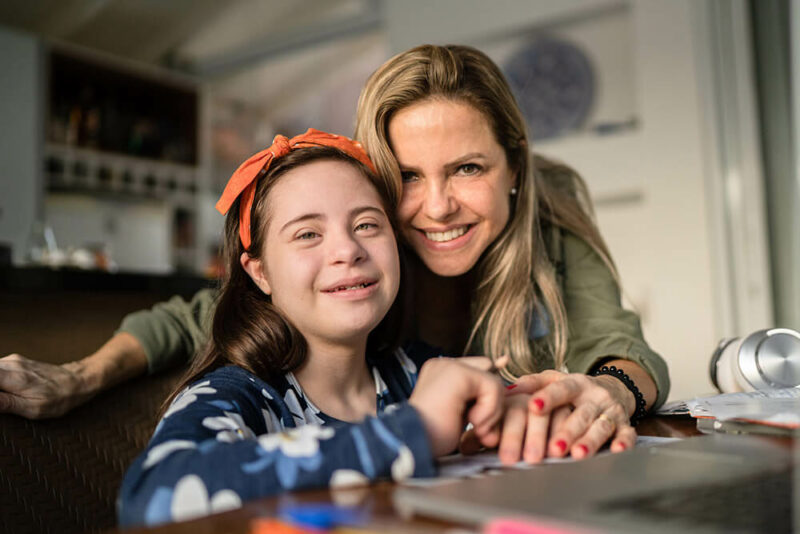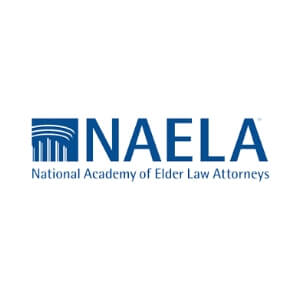Life with a disabled loved one is challenging. Our team can help. Together, we’ll create a comprehensive legal plan for peace of mind today, and for years to come.
A special needs trust is the best way to protect your disabled child long-term. We guide families through this complex process by designing first-party and third-party trusts, assisting with administration, counseling families on applicable public benefits, and representing families when public benefits are denied.


Once your child turns 18, a guardianship allows you to retain legal rights and avoid uncertainty. Avoid unnecessary stress from not being able to assist and care for your disabled child. We’re here to help you through the guardianship process.
While there are several applicable government benefits available to disabled Americans, most are not well publicized or understood. We help you identify, apply for, and obtain relevant financial and medical benefits for your family.


There is a tremendous amount of paperwork and forms involved, and it was just too much to manage alone. Caleb got us through the maze. He knows his Arizona law when it comes to the disabled. He knows the law when it comes to the overall protection of your assets. He understands what families like ours are going through and why it’s important to take care of these things. Caleb is the real deal.
Special needs and disability planning is more than just our work. It’s part of our story. Three of the team members at Lihn Law Group have children with medically complex needs.



If a loved one has a physical or mental disability, their legal needs will vary throughout their life. Here are some ways we’ve helped support our clients:

Our family had an estate plan prepared by a large firm in Arizona. We were referred to Caleb to have our plan reviewed since we have a child with severe medical needs. He determined that our plan omitted any special needs planning or special needs trust. Through Caleb’s advice and the guidance of his team, we now have a plan that works for our family and protects our son.
Individuals of all ages with physical, mental, or developmental disabilities can benefit from a special needs trust. This includes those born with disabilities, those who acquired disabilities due to accidents or illnesses, and even seniors who require long-term care.
A special needs trust allows you to place various assets in the trust including cash, investments, real estate, life insurance policies, and personal belongings. It’s important to consult with an attorney to determine which assets are suitable for inclusion.
Special needs planning involves creating a comprehensive strategy to address the long-term needs of individuals with disabilities. It ensures that their financial, legal, and care-related aspects are well-managed and coordinated, providing peace of mind for both them and their families.
There are various components involved, like creating a special needs trust, developing a care plan, appointing a guardian or advocate, exploring government benefits, and ensuring a smooth transition of care in the event of the caregiver’s absence. Lihn Law Group developed a custom, three-phase road map to walk you through this important estate planning and guide you to a specific plan that fits your family and your loved one with a disability.
It may be easy to think about putting this off, but it is never too early to put the framework of a special needs plan into place, including creating a special needs trust for your loved one. Unfortunately, we can’t predict the future or exactly when a plan may be necessary, but we can predict how to plan for you and your loved ones.
There are two primary types of special needs trusts: a first-party trust and a third-party trust.
A first-party trust is funded with the funds of the disabled person, typically from a settlement, retroactive payment of benefits, wages, or a poorly planned inheritance. A first-party special needs trust has many conditions and requirements, including a mandate that Medicaid be listed as a priority beneficiary to collect reimbursement on funds they’ve paid out.
In contrast, a third-party trust, funded with funds from someone other than the disabled person, has significantly fewer requirements, is easier to administer, and is not required to have the language that Medicaid benefits must be paid back.
Because of the complexity of special needs planning, we highly recommend you engage an attorney for special needs planning. This type of planning should only be undertaken by an attorney experienced in special needs planning. Our founder’s dedication to special needs planning is demonstrated through his service as a member of the board of directors for the National Academy of Elder Law Attorneys and as an adjunct law professor teaching a class on special needs trusts administration.
The key duties of a trustee of a special needs trust include understanding the trust, managing trust assets, making distributions for the beneficiary’s benefit, coordinating with health care providers, filing necessary paperwork, ensuring compliance with government regulations, and maintaining accurate records.
As a parent of your child, you hold all legal decision-making responsibility for them until they turn 18. Thus, guardianship isn’t necessary until your child is 18. You can, however, file a Petition for Guardianship of your child as soon as they turn 17 ½, so the process is underway and completed by their 18th birthday.
Call us today. We’d love to hear from you.

The information on the Lihn Law Group, PLLC website is for general information purposes only. Nothing on this site should be construed as legal advice. No content on this website, including any articles, testimonials, or other materials, should be considered a substitute for obtaining legal advice from a qualified attorney. Viewing this website or contacting our firm through this website does not create an attorney-client relationship. Please do not send confidential information through this website or by email until an attorney-client relationship is established.